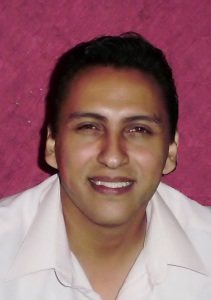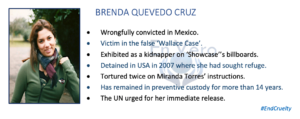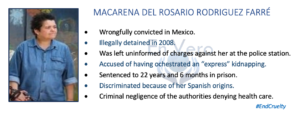Autor: Guiliana Rojas Cazco, Member of the Executive Committee
April 19, 2016
Translation by Marisol Gutierrez, revision: Clara Hessler
It is with great regret that the Canadian Association for Rights and Truth (CART) receives the news of Yarold Leyte Quintanar’s thirty-two year and six month prison sentence. He has been accused and charged of Maria Teresa González’s murder in Veracruz, Mexico.
Not only regrettable for Yarold, this sentence has also deeply affected Maria Teresa’s family who has not yet found truthful justice.
Reflection of the Mexican criminal justice system, Yarold’s trial took four years to reach the unfortunate sentence. Throughout this entire period, the accused was deprived of his freedom as well as his right to a fair trial.
Moreover, this sentence is the product of an investigation and a procedure wrought with inconsistencies and contradictions. In fact, the only direct evidence against Yarold is a forced confession obtained after having suffered a ten-hour torture session by agents of the Research Agency Veracruzana (AVI). This confession, that should have been inadmissible in court, was the result of a human rights violation. Meanwhile, these rights are specifically entrenched in the Constitution of Mexico and recognized by international law. Moreover, Yarold’s confession is contradicted by the evidence submitted, since all the reports call into question his declaration, such as the arm used by the murderer, the place of the incident and the wound of the victim. Although the contradictory evidence should have served as a basis for determining the innocence of the accused, these inconsistencies were not taken into consideration by the judge. “What was narrated by the defendant doesn`t correspond with the reconstruction of the incident neither with the result of the neurosurgery. Given such a great importance to the development of the facts and its accreditation during the criminal process, it may have been an act of his own defense by accepting the murder and justifying his action by changing the truth on how the incident took place.” Is this argument sufficient to dismiss the obvious contradictions in the evidence? Shouldn’t the notion of a fair trial necessitate further investigation of the evidence’s inconsistencies? Should these contradictions have not served as an indication of a false confession? Since the defendant is presumed innocent, his declaration obtained under duress, which contradicts the rest of the evidence on record, should have been enough to raise reasonable doubt instead of presuming guilt.
In any case, Judge Roberto Paredes Sanchez addressed the contradictions in the evidence with such lightness that it is not surprising that the judgment makes no mention of the physical violence Yarold was subjected to. The fact that Judge Paredes Sanchez considered these arguments valueless, when his duty should have been to further the investigation, demonstrates the situation’s absurdity.
The judge not only ignored the contradictions on record and the allegations of torture, but also based his judgment on purely circumstantial evidence, such as statements from witnesses who saw the victim in Yarold’s neighborhood. Are these testimonies sufficient evidence to deny the accused’s fundamental presumption of innocence? Are they evidence enough to detain a person for 32 years and six months?
On our part, we will continue working on Yarold’s case, since Maria Teresa and her family deserve the justice they seek; this crime must be rigorously and methodically investigated in order to clarify the verdict.





